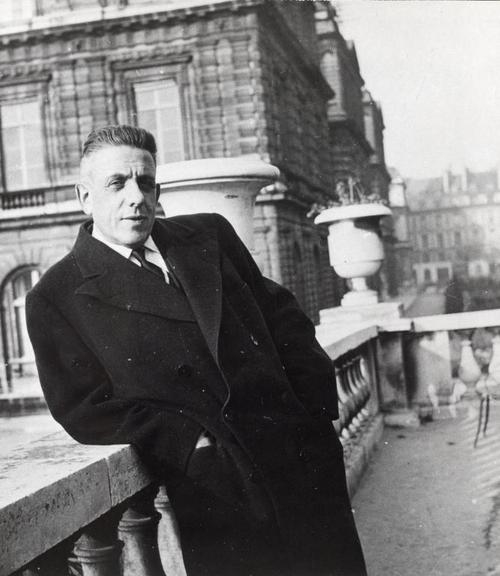Time blurs strangely together towards the end of the academic term, and I can't quite believe it's late December already... but I seem to have seen my last opera of the year, so it must be true. To cheer the longest night of the year, here's 2011's non-hierarchical, gleefully subjective round up of some of the past year's highlights: great nights, standout performances, and exploring the city's many opportunities for opera.
5 Great Nights
Not without difficulty, I've picked out a handful of the nights that reminded me of opera's glorious possibilities, by surprising me with their musical excellence and emotional immediacy. In alphabetical order:
Atys, Brooklyn Academy of Music. I saw this glorious gem in September, and it set a standard that the rest of the autumn never quite reached. The ensemble work of Les Arts Florissants was precise, elegant, and passionate, evoking seventeenth-century splendor and creating timeless enchantment. The production is now available on DVD .
.
Bluebeard's Castle, with the New York Philharmonic. Including a concert performance may seem like bending the rules, but so much of Bluebeard is about perception and imagination that I thought it worked well. Lighting was used well, and the musical values were superb. Esa-Pekka Salonen drew fiery and subtle playing from the orchestra, Gabor Bretz was a charismatic Bluebeard, and Michelle DeYoung a stunning Judith, emotionally rich and vocally luxurious.
Don Giovanni, with the Budapest Festival Orchestra. This production, seen at the Mostly Mozart festival, has been the year's most talked-of among my friends, often to the detriment of more costly and less creative endeavors. Ivan Fischer was behind the idea which had the cast clad in contemporary evening dress, moving among dancers who formed the sets, reflecting the titular antihero's view of the world. There were allusions to classicism and romanticism, there was very fine singing, especially from Laura Aikin as Donna Anna, and Fischer led the BFO in a hair-raising, fire-and-brimstone reading of the score in its Prague version.
Die Walküre, at the Met under James Levine. I'm breaking a bigger rule here, and ignoring the (non-)contribution of the production. But the performances I saw gave me a list of indelible moments--the twist of anguish in grüße mir Wälse, for instance--and their dramatic sweep was irresistible. The orchestra gave of their best under Levine's leadership, and the performances were deeply moving, from Siegmund and Sieglinde's first entranced encounter to the finale through which I sobbed. Twice.
Wozzeck, another highlight of Levine's curtailed spring schedule at the Met, a stunning, searing performance of Berg's claustrophobic masterpiece. All of the singers inhabited their roles fully, and sang them excellently.
5 Great Nights
Not without difficulty, I've picked out a handful of the nights that reminded me of opera's glorious possibilities, by surprising me with their musical excellence and emotional immediacy. In alphabetical order:
Atys, Brooklyn Academy of Music. I saw this glorious gem in September, and it set a standard that the rest of the autumn never quite reached. The ensemble work of Les Arts Florissants was precise, elegant, and passionate, evoking seventeenth-century splendor and creating timeless enchantment. The production is now available on DVD
Bluebeard's Castle, with the New York Philharmonic. Including a concert performance may seem like bending the rules, but so much of Bluebeard is about perception and imagination that I thought it worked well. Lighting was used well, and the musical values were superb. Esa-Pekka Salonen drew fiery and subtle playing from the orchestra, Gabor Bretz was a charismatic Bluebeard, and Michelle DeYoung a stunning Judith, emotionally rich and vocally luxurious.
Don Giovanni, with the Budapest Festival Orchestra. This production, seen at the Mostly Mozart festival, has been the year's most talked-of among my friends, often to the detriment of more costly and less creative endeavors. Ivan Fischer was behind the idea which had the cast clad in contemporary evening dress, moving among dancers who formed the sets, reflecting the titular antihero's view of the world. There were allusions to classicism and romanticism, there was very fine singing, especially from Laura Aikin as Donna Anna, and Fischer led the BFO in a hair-raising, fire-and-brimstone reading of the score in its Prague version.
Die Walküre, at the Met under James Levine. I'm breaking a bigger rule here, and ignoring the (non-)contribution of the production. But the performances I saw gave me a list of indelible moments--the twist of anguish in grüße mir Wälse, for instance--and their dramatic sweep was irresistible. The orchestra gave of their best under Levine's leadership, and the performances were deeply moving, from Siegmund and Sieglinde's first entranced encounter to the finale through which I sobbed. Twice.
Wozzeck, another highlight of Levine's curtailed spring schedule at the Met, a stunning, searing performance of Berg's claustrophobic masterpiece. All of the singers inhabited their roles fully, and sang them excellently.

